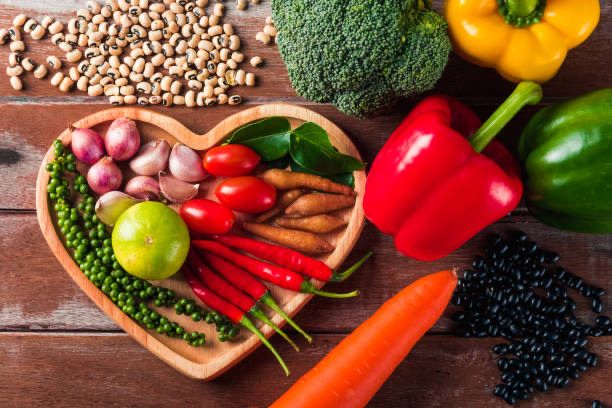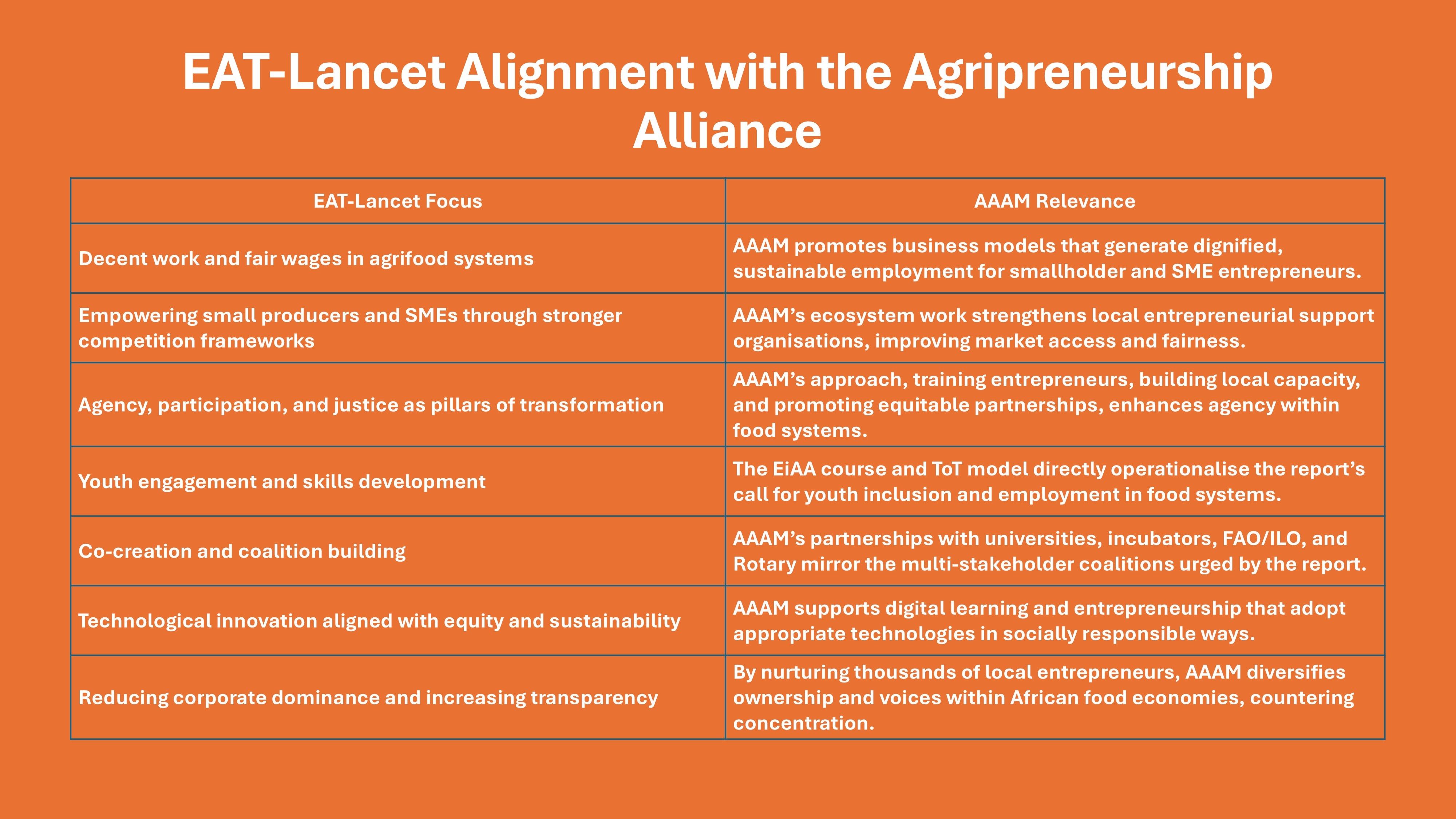EAT – Lancet 2025: Africa’s Great Food Transformation

As the world gathers in Rome this week for the 53rd Session of the Committee on World Food Security (CFS53), the launch of the EAT–Lancet 2025 Commission on Healthy, Sustainable, and Just Food Systems marks a defining moment in the global food dialogue. Six years after its first report, the new Commission presents an expanded, justice centered vision that links what we eat to the health of people, the planet, and our economies. It reminds us that food systems are not just about calories and crops, but about equity, dignity, and opportunity. For Africa where agriculture sustains nearly half of the workforce and underpins youth livelihoods this new call for a “Great Food Transformation” is a chance to reimagine the continent’s path toward inclusive prosperity and ecological balance.
At its core, the 2025 EAT–Lancet report reinforces that justice must drive transformation. It introduces three interconnected rights; the right to food, to a healthy environment, and to decent work as non-negotiables in building a just food future. Yet, in many parts of the globe, these rights remain elusive. Smallholder farmers and young entrepreneurs still face limited access to land, finance, and fair markets, while large agribusinesses continue to dominate value chains. The Agripreneurship Alliance (AAAM) recognises that changing this narrative requires more than policy, it demands empowerment. Through our Entrepreneurship in African Agribusiness (EiAA) programme, we invest in building the agency and leadership capacity of young Africans, helping them design sustainable business models that create dignified livelihoods and protect our environment. By equipping emerging agripreneurs with tools to measure social and environmental impact, AAAM ensures that Africa’s entrepreneurs are not just part of the food system they are transforming it from within.
The updated Planetary Health Diet (PHD), another cornerstone of the Commission, offers a blueprint for how humanity can eat within the planet’s limits while nourishing every person. It calls for diets rich in fruits, vegetables, legumes, and nuts, complemented by moderate amounts of animal sourced foods. While this might sound new to some, African food cultures have long embraced similar principles through indigenous crops like millet, sorghum, cowpeas, and groundnuts foods that are nutrient-dense, climate-resilient, and deeply rooted in local traditions. What is missing is investment and innovation to scale these foods through value addition, processing, and modern marketing. Here lies one of Africa’s greatest opportunities to turn traditional foods into 21st-century enterprises that meet both local nutritional needs and global sustainability goals.
The EAT–Lancet 2025 findings also emphasise the importance of coalition-based action, urging governments, private actors, and civil society to work together to unlock finance, strengthen markets, and support fair competition. This is where organisations like AAAM play a catalytic role linking universities, incubators, and entrepreneur support organizations (ESOs) through working with regional and international partners such as FAO, ILO, Rotary, Global Giving, and African universities. By creating networks that bridge science, policy, and enterprise, they help turn research into real change empowering youth-led agrifood SMEs to thrive and ensuring that innovation is inclusive, not extractive.

Africa’s young population, with its creativity and determination, stands at the heart of this transformation. The continent’s future food systems will depend on how well we nurture this human capital through education, digital access, and entrepreneurship support. The EAT–Lancet Commission calls for “unprecedented levels of innovation and collaboration,” and AAAM’s experience across more than 10 African countries proves that these are already emerging. From climate-smart production to circular economy solutions, African youth are pioneering the future of food. What they need now are ecosystems that trust and invest in them.
As the world debates food security, climate resilience, and justice at CFS53, one truth stands clear: Africa’s agripreneurs are not waiting to be saved, they are ready to lead. The Agripreneurship Alliance stands beside them, enabling ethical and impactful food enterprises that embody the principles of the EAT–Lancet vision. Together with our partners, we are working toward a future where every meal sustains not only bodies but also communities and the planet itself. The launch of the EAT–Lancet 2025 Commission is a timely reminder that the transformation we seek begins with those who dare to innovate and collaborate. Africa’s great food transformation has already begun and it is being driven by its youth, one enterprise at a time.
Sheila Mary Bahonya
22 October 2025